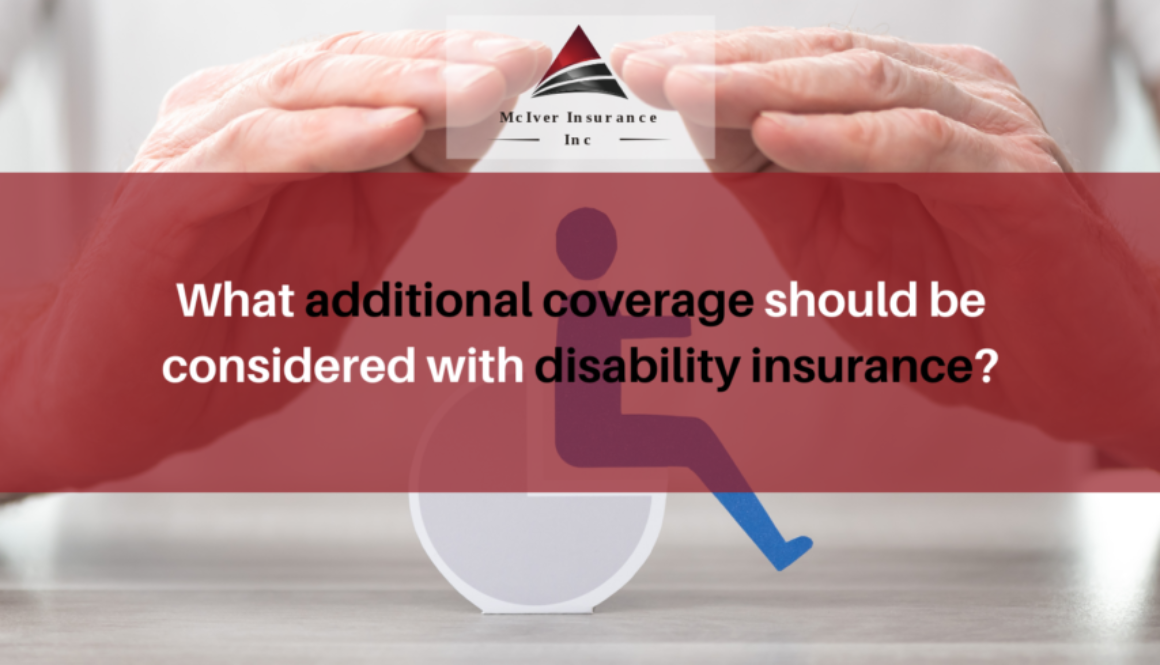Disability Insurance for Small Business Owners
As a small business owner in Nova Scotia, you’re probably the heartbeat of your operation.
But what happens if you can’t work due to a disability?
Statistics from the Canadian Life and Health Insurance Association show that one in three Canadians will experience a period of disability lasting longer than 90 days during their working life.
For Nova Scotian small business owners, that translates to halted operations and significant loss of income – unless you’ve got a safety net like disability insurance.
Disability insurance can ensure your business and personal finances stay on track even if life throws a curveball!
Key Takeaways:
- Income Protection: Disability insurance ensures your income and business operations don’t suffer if you can’t work due to injury or illness.
- Types of Insurance: Options include short-term and long-term plans, personal disability coverage, and business-specific plans like overhead expense insurance.
- Planning Ahead: Without proper planning, the future of your small business is in jeopardy.
The Importance of Disability Insurance for Small Business Owners
Let’s say you own a small landscaping business and get injured (outside of work) during peak season or are too ill to work for an extended period.
That could spell disaster for your business if not for disability insurance.
This financial tool is designed to replace a portion of the income lost due to illness or injury and can be especially beneficial for small business owners who don’t have employer-sponsored coverage.
Types of Disability Insurance
In Canada, small business owners have access to several types of disability insurance.
Personal Disability Insurance can compensate you for living expenses like mortgage payments or groceries until you are back on your feet.
A Business Overhead Expense Insurance policy can protect your business by covering fixed costs like rent, utilities, and employee salaries, ensuring your business stays afloat while you recover.
You also have options like short-term and long-term disability insurance and Worker’s Compensation which provides coverage for work sustained injuries.
These types of disability insurance work together to protect your livelihood and your business’s future.
Disability Insurance – Costs and Coverage Options
The cost of disability insurance varies based on factors like age, occupation, and health. Premiums can also vary depending on coverage length, benefit amount, and exclusions.
Small business owners in Nova Scotia can expect a disability insurance policy to cost on average between 1-3% of annual income.
Short-term policies provide benefits for a few months and generally have lower premiums. Long-term plans can last for years or even until retirement but are more expensive.
Typically, disability insurance policies cover 60-85% of your lost income. The higher the percentage the more the policy is likely to cost.
It is always best to shop around, compare quotes from different providers, and consult an insurance broker to find a plan that best fits your needs and budget.
Another top tip is to read the fine print carefully and be aware of pre-existing conditions or high-risk activities that may impact coverage and eligibility.
Why You Need Disability Insurance for Your Small Business
Here are reasons why your Nova Scotian small business needs disability insurance coverage.
- Safeguards your business by ensuring expenses are covered
- Get you back on your feet through work benefits such as rehabilitation and job training
- Protects your partners by compensating them for lost income or providing them funds to buy your share of the business via a buy/sell agreement
- Allows you to keep employees on the payroll
- Ensures business continuity
Choosing the Right Disability Insurance Plan
As a small business owner, you likely have a stringent budget and want to keep costs as low as possible.
However, having a disability insurance plan is an expense that can’t be ignored.
The right insurance plan can help protect you, your employees, and your business from financial turmoil.
But how do you choose the right disability insurance plan for your business needs?
You start by calculating your monthly expenses and business costs to determine how much coverage or benefit amount you’ll “actually” need.
Short-term disability insurance can offer benefits of up to 80% of gross monthly income while long-term disability plans usually provide a benefit of up to 60%.
You will then need to figure out your ideal benefit duration. Short-term disability insurance will provide a benefit duration of three to six months while long-term disability offers benefits for two years, five years, 10 years, or until you retire. The longer the benefit duration the higher the premiums.
That’s not all!
You will also need to determine what waiting period to opt for. Shorter waiting periods (14 days or less) mean faster payouts but higher premiums and vice versa.
Armed with this information you will now look for insurers with strong ratings and positive reviews, especially those with experience serving small businesses in Canada.
When considering different policies, look for limitations, exclusions, policy provisions, and optional features.
By being aware of all terms and conditions you can make more informed decisions about which policy works best for you!
Consult A Trusted Disability Insurance Broker
Whether you are a small business owner wanting to protect your business’s future or an individual wanting to add disability insurance to your existing group plan, McIver Insurance Inc. is your most trusted disability insurance broker in Nova Scotia.
We offer free consultations and have a five-star rating on Google Reviews.
To get in touch, call now at 1-902-220-3279 or email pat@mciverinsurance.com.
FAQ Section
Q1) What’s the difference between short-term and long-term disability insurance?
Short-term policies cover temporary disabilities, usually lasting a few months, while long-term insurance kicks in for extended periods, potentially up to retirement.
Q2) How do I calculate the amount of disability insurance I need?
Add up your living expenses and fixed business costs. The total will give you a good idea of the coverage you’ll need.
Q3) Can I deduct the cost of disability insurance from my taxes?
Yes, premiums for business overhead insurance are generally deductible in Canada, but personal disability insurance premiums aren’t.
Q4) What happens if I never use my disability insurance?
You don’t get the money back, but the peace of mind it provides is priceless. It’s like fire insurance—hopefully, you never need it, but you’re grateful to have it if you do.
Q5) How do I file a claim if I become disabled?
Notify your insurer immediately, complete the required forms, and provide medical documentation. Working with a trusted insurance broker can help streamline the process.

